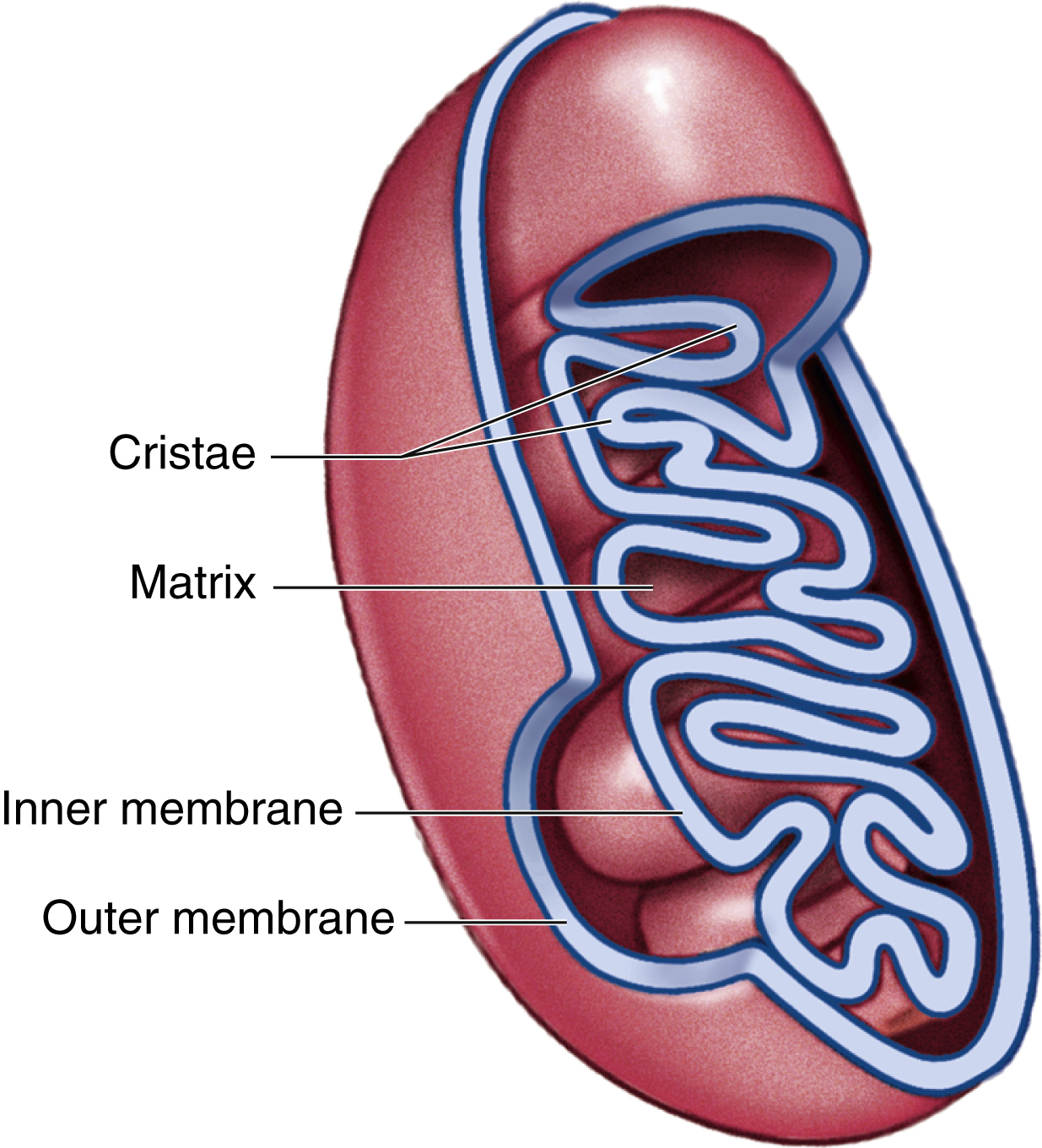mitochondrion /mī′tōkon″drē·on/ pl. mitochondria [Gk, mitos, thread, chondros, cartilage] , a rodlike, threadlike, or granular organelle that functions in aerobic respiration and occurs in varying numbers in all eukaryotic cells except mature erythrocytes. It is bounded by two sets of membranes, a smooth outer one and an inner one that is arranged in folds, or cristae, that extend into the interior of the mitochondrion, called the matrix. Mitochondria provide the principal source of cellular energy through oxidative phosphorylation and adenosine triphosphate (ATP) synthesis. They also contain the enzymes involved with electron transport and the citric acid and fatty acid cycles. Mitochondria are self-replicating and contain their own DNA, RNA polymerase, transfer RNA, and ribosomes. Also called chondriosome. −mitochondrial, adj.

